Xerox 1090
Last modified: Dec 13, 2024 @ 1:51 pm
February 1985: Xerox announces the Xerox 1090.
The Xerox 1090's programming facilities could make every kind of copying easy to do, with simple inscrutions displayed clearly on the control panel. The copier could produce 92 copies in a minute.
In Europe the Xerox 1090 was manufactured at Lille in France.
It's inbuilt microcomputer could hold some 500 mesages to help the operator to program the exact requirements; to advise the operator of the progress of the work; and to solve problems if the operator should need help. The combination of plain language text and coloured graphics enables even untrained users to confidently use the copier's versatile facilities.
The Xerox 1090 could copy single sided or double sided documents, and produce them as single sided or double sided copies. Meaning that the user could convert a single sided report to double sided, thus halving the bulk and paper cost, and reducing distribution and storage costs. Or the user could spread a double sided original onto single sides, leaving reverse sides free for notes or illustrations. The 1090 had image shift to properly position the second side when it makes double sided copies, ensuring correct binding margins.
The 10 series represented a new generation of copiers. This became the most successful line of copiers in Xerox history and served to restore the company's finances and morale. The flagship Xerox 1075 became the first American-made product to win Japan's Grand Prize for Good Design. Altogether, 14 models were introduced between 1982 and 1986, six of which were still sold in 1990.
| IMAGES |
Do you have any more information about this model, or have brochures / pictures? Please leave a reply in the form below, or send an email to xeroxnostalgia@outlook.com
| SPECIFICATIONS | |
|---|---|
| Copy speed (per minute) | 92 |
| Paper tray | Main tray 1100 sheets Auxiliary tray 600 sheets |
| Output tray capacity | 100 sheets |
| Finisher/sorter/stacker |  |
| Staple function | Staples up to 50 sheets at a time |
| Reduction/zoom | 6 presets Variable from 64% to 155% |
| Document handler | Semi or fully automatic document handler |
| Dimension and weight | |
| Depth | 89 (cm) / 35.1 (inches) |
| Width | 256 (cm) / 100.9 (inches) |
| Height | 130 (cm) / 51.2 (inches) |
| Weight | 545 (K grams) / 1202 (Lbs) |
| Floor space requirements | 3 x 2 (meters) / 9.8 x 6.6 (feet) |

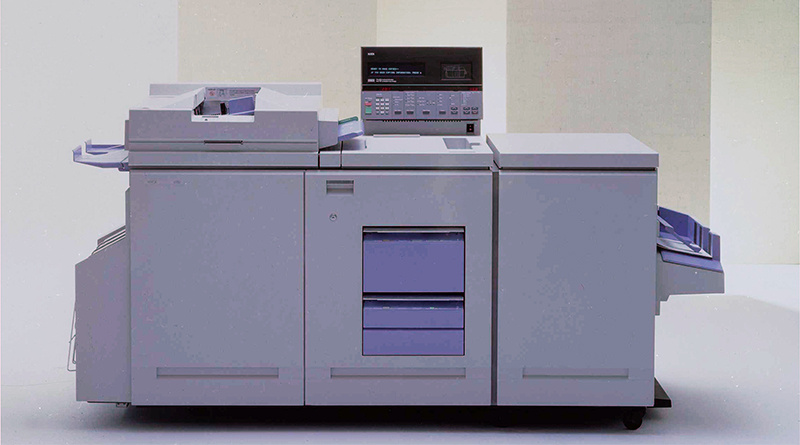
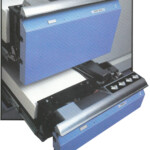
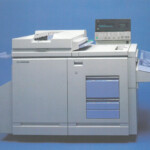
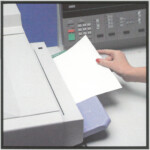
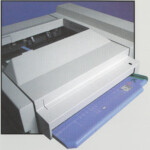
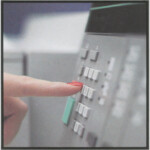
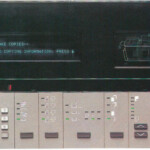
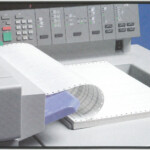
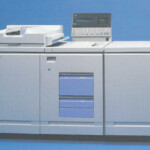
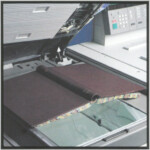
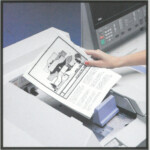
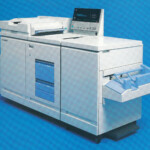
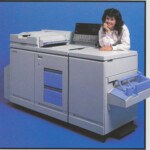
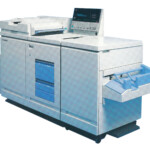
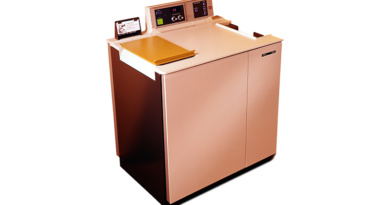
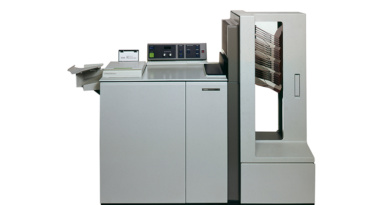
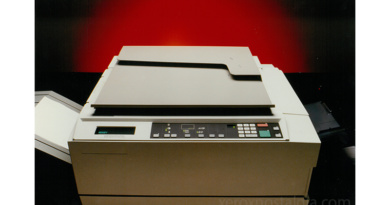
I ran the zerox 1090, early 1986-1989 at the Ohio State reformatory as an inmate, one the most trusted inmate assignment / duties in the prison system in those days, for i could or knew about every thing that was going to happen before staff there, the 1090 was needed to copy and supply every inmate a copy of the Boyd concent decree coming thru the doors at OSR. Through the years, my 1090 was known as the grand-daddy of them all, it had to nearly, constanely run, it had put out close to 3 million copies in alittle over… Read more »
I used this machine in the 90’s. Hard, durable and reliable. And what good memories!
I used 2 of these back in the 90’s. I used to have to copy old oversized legal documents that had been folded for up to 100+ years, requiring both hands to hold the originals flat and pressing the start button with my nose! (the cover could damage the spines) One of the engineers fitted a plate and rubber bulb type foot pedal for me. I used to tell anyone who came in that it was a ‘New, Voice Operated Copier’ – I’d press ‘Interrupt’ and explain that the little green light meant that voice control was on. I then… Read more »
I made a lot of money selling these in Toronto back in the late 80s and early 90s. Great machine. One sale stood out – I knocked out a couple of Kodak 300s at a pharmaceutical company. Xerox had a limit of 1 week for a trial. The client also offered a week trial. I insisted on a month – I needed the staff to get used to the new machine and stop walking to use the other Kodak. At the end of the month it was pretty clear the staff preferred the 1090. I still had to discount heavily… Read more »
We also painted the platen white in those unused areas. Used a lot less toner and kept the machine running a lot longer.
I started on 1075 myself and went on to its many successors like the 1090, 5100, 5800, docutech 135. The device that could add numbers were called a Paginator. Nobody liked working on the paginator for it require a few things to be exactly right or else it wouldn’t work right. It was mounted in the lens cavity just above the photoreceptor as well as on the photoreceptor assembly. I miss those days. This was midtown Manhattan in the late 80s to early 90s. I worked with some awesome people back then. I learnt so much. I miss those days;… Read more »
This machine. Such good times together! I worked at a copy shop that specialized in litigation/bankruptcy work. I was given a box of checks to copy. Faced with such daunting glasswork, it came to me. Pushing the RDH up out of the way, I taped off the platen to just the area of the check. I pushed my table against the machine and added I think three reams of paper to sit on. I took off my shoes and got up on the table. With a stack of checks in front of me, I was able to use both hands… Read more »
Obviously the work horse of it’s time, but it ripped originals to shreds. I much preferred the 9210 next to it that only had to pull an original once every 25 copies. Really a much more brilliant system than an RDH. That said, this was a life saver well into the 2000s.
The RDH needed lots of maintenance too with all the clutches in the back. Looking back though I loved the machine for the most part. I worked on it for 15 years. I remember accounts that would have 10 or 15 in a room with an operator working a whole shift in front of each one. They used the RDH to run legal files or real estate files and the top of the machine was a great work surface. They would have a tray on top of the finisher with their pens tape staple remover (ugh!) all lined up. No… Read more »
Yes indeed, I remember your repair notes and the word “Clutch” was in that log many a time. Hi Pat! Kelly from Rutan & Tucker.
Wow does this bring back memories. I spent a year in New York helping develop this product in 1984 through 85. I’m still in Chicago. Any old friends that see this say hi I’m Paul Holtz. Pholtz@classondemand
Net
Thanks for helping develop one of my favorite machines of all time! 🙂
When the 1090 came out I was a copier trainer or CSR in then Princeton, NJ sales office but then moved into sales. We sold a ton of them!